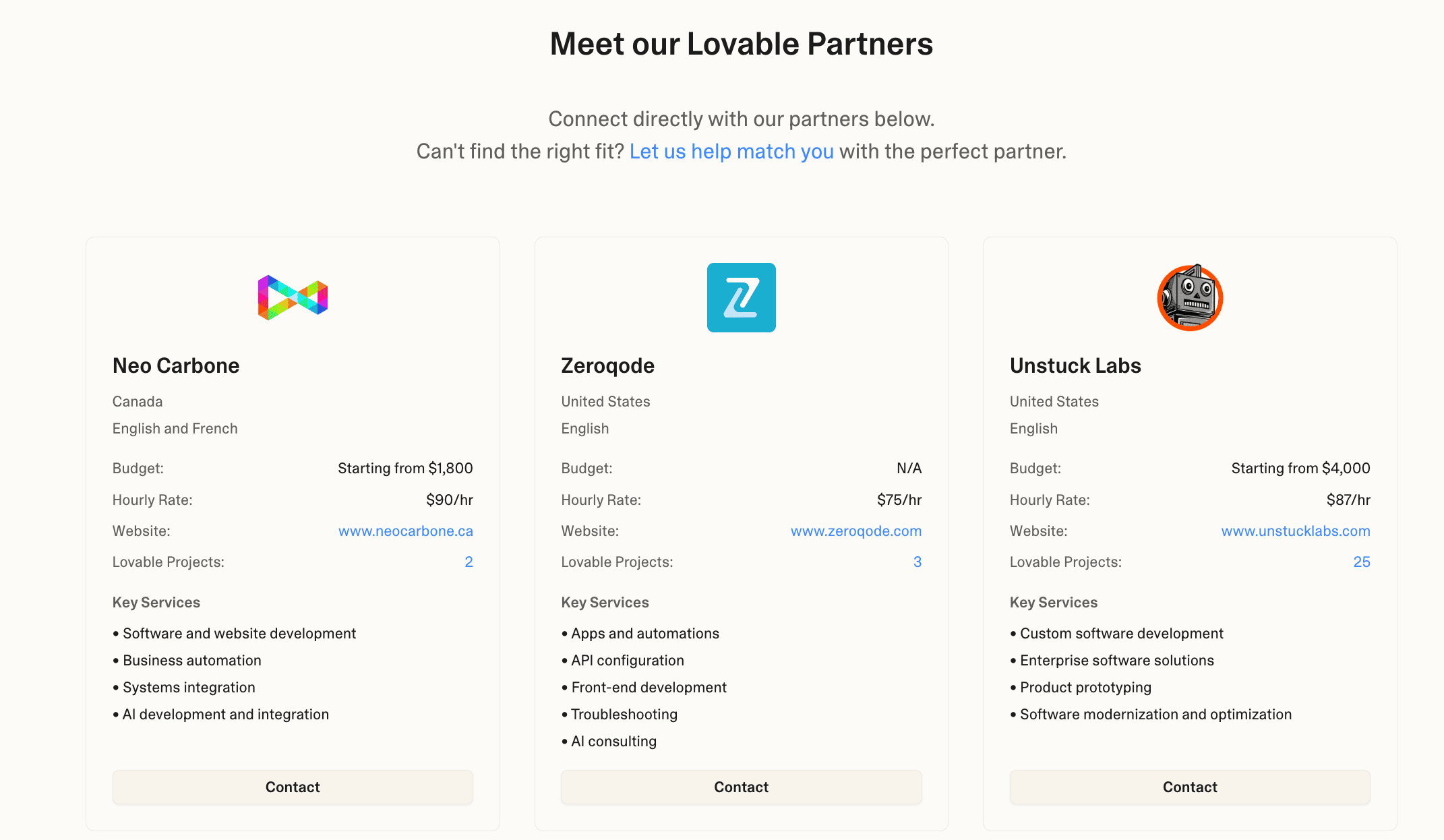
Lovable 2.0 is the latest major update to Lovable, the app-building platform that lets you create software by chatting with an AI assistant. In addition to Multiplayer collaboration (supporting 2 collaborators with the Pro plan and up to 20 with the Teams subscription), Lovable 2.0 introduces an agentic workflow powered by the Chat Mode Agent. This agent performs multi-step reasoning and tooling across your codebase, handling tasks like file searches, log inspection, database queries, debugging, and more.
Lovable 2.0 now offers integrated deployment with custom domains (eliminating manual DNS setup), enhanced security measures for a safer experience, and an evolving Dev Mode. Reminiscent of Visual Basic’s experiment to open the floodgates for non-technical folks with Windows apps, Lovable is persevering in their mission to democratize vibe-coding.
Lovable was one of the first platforms to integrate effectively with Figma, partnering with Builder.io to let users convert designs into functional code. This streamlined the leap from prototype to production. This early innovation positioned Lovable as a leader in bridging design and development. The new introduction of Multiplayer adds a strong collaborative layer, and when combined with the custom domain deployment capabilities, it slashes iteration time and boosts innovation.
That said, once the initial shine of the announcement wore off, some frustrations arose. On r/Lovable, several threads popped up with titles like “Is Lovable 2.0 ok now?” and “Whatever they did in the 2.0 update, it’s way worse now.” One common complaint was the quality of generated code: some speculated whether Lovable 2.0 switched to a less capable model to cut costs.
Mindful of the complexities in development, Lovable complements its offerings by connecting projects and builders with engineering partners. Whether it’s assistance with front-end, back-end, API configuration, or security (see below), developer expertise remains essential to ensure reliability.

With Lovable 2.0 now out in the wild, the big question is: where’s this headed? The Lovable team made their backend integration partner (Supabase) LLM-friendly by building a translation layer on top of the API. In the post-MCP world, we can expect deeper integrations and greater flexibility (their team did hint at this).

If we zoom out: we’ve moved from low-level programming to higher-level languages (assembly → C → Python), each step adding abstraction. Following this, frameworks like React and Django packaged common patterns, and cloud services (Firebase, AWS Lambda) abstracted infrastructure. Its next logical leap: from writing logic to exploration and describing intent (more on this in 4 Patterns on AI Native Development). This shift has already begun, crucially widening who can build it.
Interestingly, while Lovable’s delivering on its promise to abstract as much as possible, they are also offering more control under the hood. By allowing users to chat with the agent without making direct edits, or with the revamped Dev Mode, Lovable is providing greater flexibility and hands-on control. This approach—combining abstraction with control—positions Lovable as an entry point for vibe-coders and a starting tool for technical folks seeking discovery.
While not a traditional dev-tool, Lovable is a tool for prototyping, and there is merit in giving it a spin as it can be a fun place to scaffold; especially since Lovable’s Dev Mode and code export options are available.
As devs, we know better than to trust “Build this app with no-code (or yes-code, as they call it now!) and make a $100k ARR”. That’s not to say it’s impossible, but maintaining healthy scepticism and rigorously test-driving every new tool should be standard practice.
The last decade brought us cloud, DevOps (shoutout to AIND’s own Patrick Debois), and tons of automation… The next decade is ushering in AI Native development as the new normal. Lovable 2.0 offers an adjacent path. Right or wrong, it will certainly be exciting to watch from the sidelines.